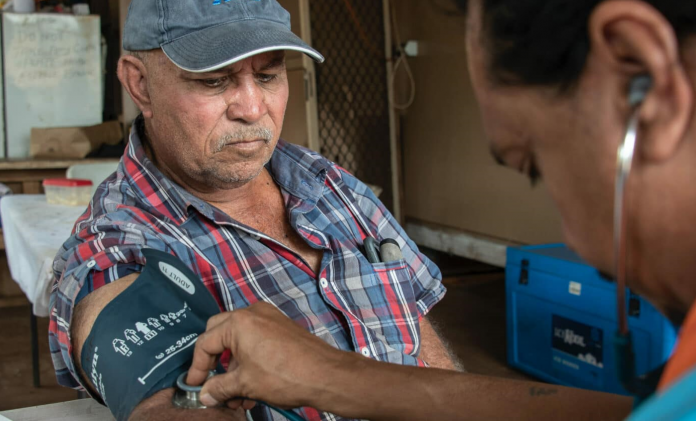More than 500 Aboriginal and Torres Strait Islander Health Workers will receive diabetes prevention training as part of a new partnership between the Bupa Foundation and The National Aboriginal Community Controlled Health Organisation (NACCHO).
The project will see the development of a specialist diabetes prevention training pathway that includes developing culturally safe training and assessment resources, delivery of face-to-face training sessions and integration into existing local Aboriginal Community Controlled Health Organisations. Diabetes is three times more prevalent among Aboriginal and Torres Strait Islander peoples, contributing significantly to kidney disease, heart disease, dementia, and other health issues.
NACCHO CEO, Pat Turner said NACCHO is committed to driving meaningful, community-led healthcare solutions.
“This partnership with the Bupa Foundation allows us to address diabetes prevention directly within our communities by training over 500 Aboriginal and Torres Strait Islander Health Workers.
“Culturally informed, Aboriginal and Torres Strait Islander-led training is essential to reversing the impact of diabetes and improving health outcomes. By working with Bupa, we’re building a pathway to strengthen our healthcare workforce and bring us closer to closing the health gap in our communities,” Pat added.
The new partnership forms an important part of Bupa’s ambition to work with First Nations-led healthcare organisations and other institutions to help support better health outcomes for Aboriginal and Torres Strait Islander peoples as outlined in its Reconciliation Action Plan.
Bupa APAC Chief Sustainability and Corporate Affairs Officer, Roger Sharp said this partnership is designed to deliver lasting community impact rather than short-term solutions and is desperately needed in the battle against diabetes.
“We want to create an Australia where Aboriginal and Torres Strait Islander people enjoy health equity and equality.
“We believe the best way to do that, is to partner with, support, and empower Aboriginal Community Controlled Health Organisations so they can determine the best way to drive change in communities. That’s why this partnership with NACCHO, the peak body for Aboriginal Community Controlled Health Organisations, is so important,” Roger said.
The program supports the Federal Government’s Close The Gap Initiative designed to deliver more trainers and assessors for Aboriginal Community Controlled Registered Training Organisations in order to get more health workers into communities, sooner.










